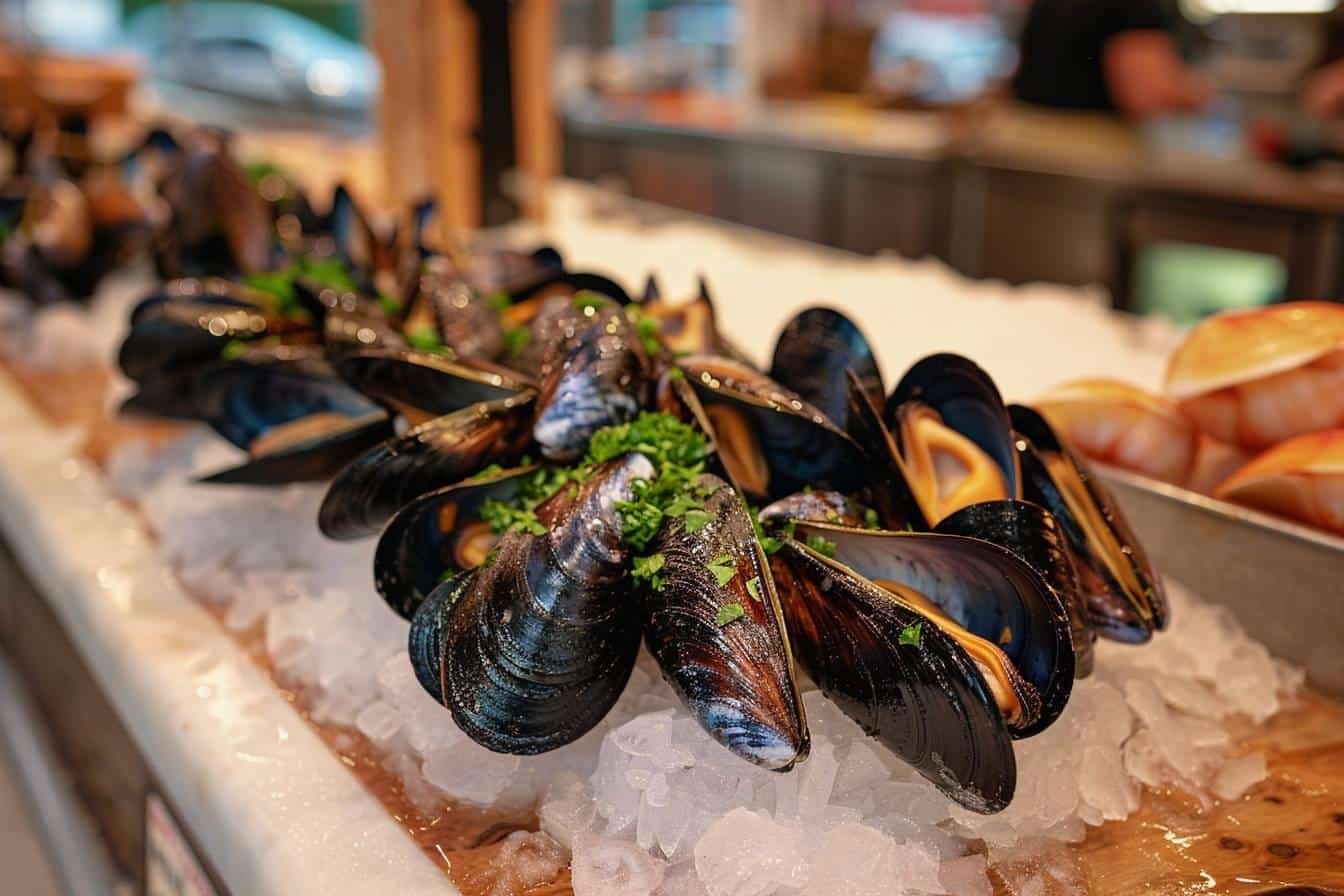Mussels are one of the most popular seafood delicacies, but preparing them can sometimes be tricky. Have you ever wondered why mussels don't open when cooked ? As a nature lover who cares about the well-being of all living things, I'd like to take you through this mystery. You'll find simple explanations and solutions to ensure that your mussels open every time they go into the pan.
Why do mussels open during cooking?
Mussels are bivalve animals, meaning that they have two shells joined by a ligament and closed by muscles called adductors. These muscles keep the shells closed, protecting the animal from predators and the outside environment.
When you cook mussels, they die as a result of the heat. As they die, their adductor muscles relax, causing their shells to open. However, if a mussel is already dead before cooking, it may not open because of the heat. rigor mortis. This phenomenon results from the absence of cellular respiration, leading to a lack of ATP hydrolysis, thus freezing actin on myosin in the muscle.
Ideal cooking conditions
To ensure that each mould opens quickly, it is a good idea to immerse them directly in boiling water. This method avoids rigor mortis and ensures that the mussels are properly cooked. If your mussels don't open after cooking properly, this could also mean that they were dead before being put in the oven.
What should I do if the mussels don't open after cooking?
You've followed the steps correctly, but some of the mussels are still closed after cooking? If so, you can try opening them with a knife. However, it is generally recommended throw them away as they may be potentially toxic. Mussels must be alive when cooked to ensure freshness and food safety.
How do you spot fresh mussels?
To eat mussels safely, you need to buy and prepare them fresh. Here are a few tips for checking their freshness:
- Mussels should ideally be bought between June and December.
- Make sure the shells are closed or close when lightly tapped.
- Avoid those with damaged or broken shells.
Fresh mussels smell of the sea, not of anything unpleasant. They do not keep well outside their shells and should be eaten quickly. If you must freeze them, make sure they are already cooked and shelled.

Preparing the moulds
Preparing moulds may seem simple, but a few tricks can make all the difference. It all starts with a thorough rinse to remove any impurities and debris. Next, remove any brown fibres protruding from the shell.
The ideal cooking methods
There are several ways to cook mussels:
- Steamed: Steam them with bay leaves, onions, white wine or beer for an exquisite flavour.
- In a saucepan: If you prefer, opt to cook in a saucepan, using the same ingredients.
- With an Airfryer or a steamer: These modern appliances also guarantee even cooking and complete opening of the shells.
Why closed mussels should not be eaten after cooking
It's tempting to open all the mussels after cooking, even those that haven't opened on their own, to avoid wastage. However, closed mussels should be avoided at all costs.
These mussels are potentially dead before they are cooked and can be dangerous to eat. Here are some reasons why you should not eat closed mussels:
- Risk of food poisoning.
- Toxins dangerous to health may be present.
- Indicates poor storage before purchase.
Tips for making the most of mussels
To enjoy your mussels safely, here are a few recommendations:
- Choose fresh, live mussels.
- Immediately plunge them into boiling water for fast, efficient cooking.
- Don't wait too long before eating them once cooked.
Remember that mussels that have been closed after cooking probably have freshness or storage problems and should not be eaten.
The virtues of mussels
Despite the precautions to be taken when preparing them, mussels are delicious and excellent for your health.
Mussels are particularly rich in protein and low in fat, making them ideal for a balanced diet.
The nutritional value of mussels
By eating mussels, you can benefit from :
- High-quality protein.
- Vitamins such as B12.
- Essential minerals such as zinc, iron and selenium.
Contrary to popular belief, mussels are not bad for cholesterol and can be part of a healthy diet. What's more, the colour of the flesh, whether white or orange, does not affect their taste or quality. This change in colour is simply linked to the food the mussel eats.
1001 Ways to cook mussels
Mussels can be prepared in many different ways. The simplest are :
- Steam them plain.
- Garnish with white wine, bay leaves and onions.
- Use more elaborate recipes such as moules marinières or moules farcies au fromage.
Frequently asked questions about mussels
Here are some questions I am often asked about mussels and their preparation:
| Questions | Answers |
|---|---|
| Why do mussels need to be alive before cooking? | They must be alive to guarantee freshness and avoid food poisoning. |
| Can I keep the mussels for more than a day before cooking them? | No, it's better to cook them the same day or the next day at the latest. |
| Do the colours of the flesh influence the taste of mussels? | No, the colour has no effect on the taste or quality of the mussels. |
By following these simple tips and keeping a watchful eye on the freshness and cooking of your mussels, you'll be able to enjoy this seafood delicacy with pleasure and without risk. Bon appétit!
